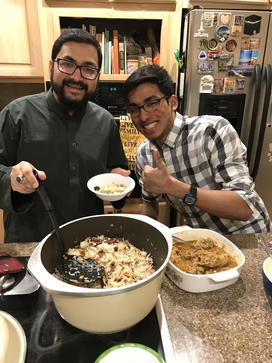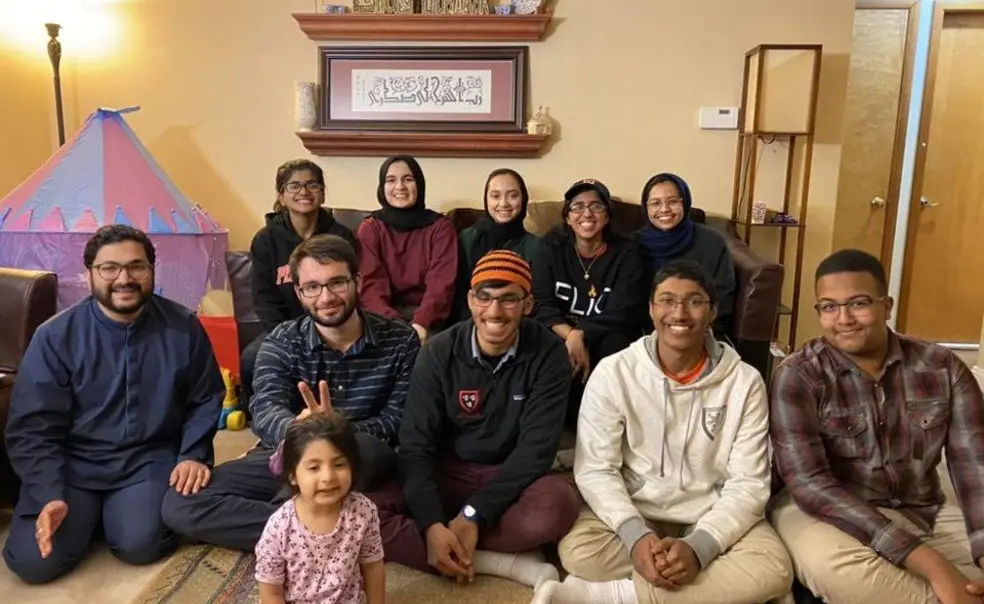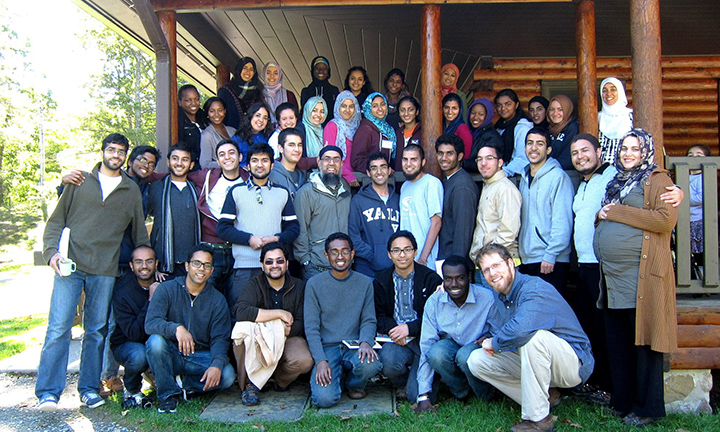Imam Sohaib Sultan Built a ‘Loving and Warm Community’ at Princeton
The University’s first full-time Muslim chaplain died of cancer at age 40
After a yearlong struggle with metastatic bile-duct cancer, Imam Sohaib Sultan — Princeton’s first full-time Muslim chaplain — passed away at the age of 40 on April 16. He joined the University in August 2008, becoming only the second institutionally supported Muslim chaplain in the United States at the time.
Sultan had already made lasting contributions before his time at Princeton, including authoring The Koran for Dummies and The Qur’an and Sayings of the Prophet: Selections Annotated and Explained, and students and alumni who knew him say his legacy will live on within the campus he served.
“Sohaib built a loving and warm community and was a keystone in so many important moments in so many Princeton students’ four years at school,” said Safa Syed ’17. “His loss will be felt in so many different ways.”

Wasim Shiliwala ’09 was an undergraduate when he served on the committee to select a full-time Muslim chaplain. Sultan stood head and shoulders above everyone else, Shiliwala said, not only because he was academically impressive, but for his serene and caring manner. “He brought a calm and gentle yet serious demeanor that convinced us all that he would be a perfect fit for the position,” Shiliwala said.
These personality traits have been appreciated by many students who spent time with Sultan during his tenure.
“I think back to all of the afternoons Sohaib let me and my fellow students hang out in his office while we ate all of the KitKats and granola bars he kept stocked,” said Sarah Qari ’16. “Even when he was trying to work, he made it feel like a space where we were always welcome and really made Murray-Dodge feel like my home at Princeton.”
Nabil Shaikh ’17 *21 said Sultan challenged his students to grow, founding the Paragon Leadership Program to train them in ethical leadership, and encouraging Muslim students to deliver Friday sermons.
“In all these instances, he was encouraging us to make our time at Princeton one of moral refinement, in addition to intellectual and professional advancement. He went to great lengths to shape young Muslims into capable leaders and community servants,” Shaikh said. “Whenever he could, he helped connect us with the tools — or, sometimes, discover those tools within ourselves — to achieve the change and impact we wanted to see.”
As he worked, Sultan also had a larger mission in mind: to bring students outside the Orange Bubble, and the outside world in. Shaikh said in his final weeks, Sultan told him he wanted to leave a legacy of “Muslim community-building through town-and-gown relations.” Today, Princeton’s Muslim Life Program opens its Friday prayers and nightly iftars (breaking of fasts during Ramadan) to people from the areas around Princeton, and invites students at universities across New Jersey to its colloquia, among other ways it interacts with the community.
“It takes an unprecedented deal of leadership and benevolence to build the wholesome community Imam Sohaib erected for his students,” said Jihad Jabban ’14. “When you spoke to him, it felt like you were the center of the world.”













No responses yet